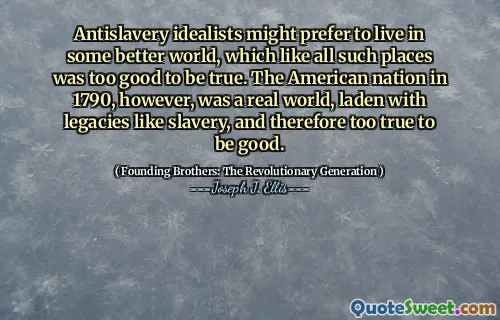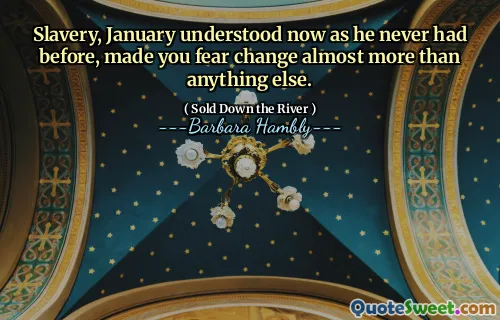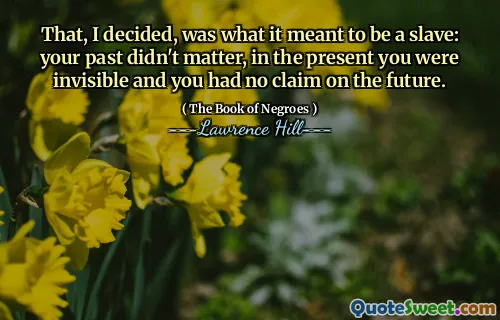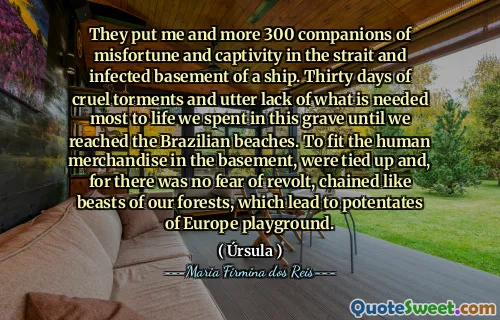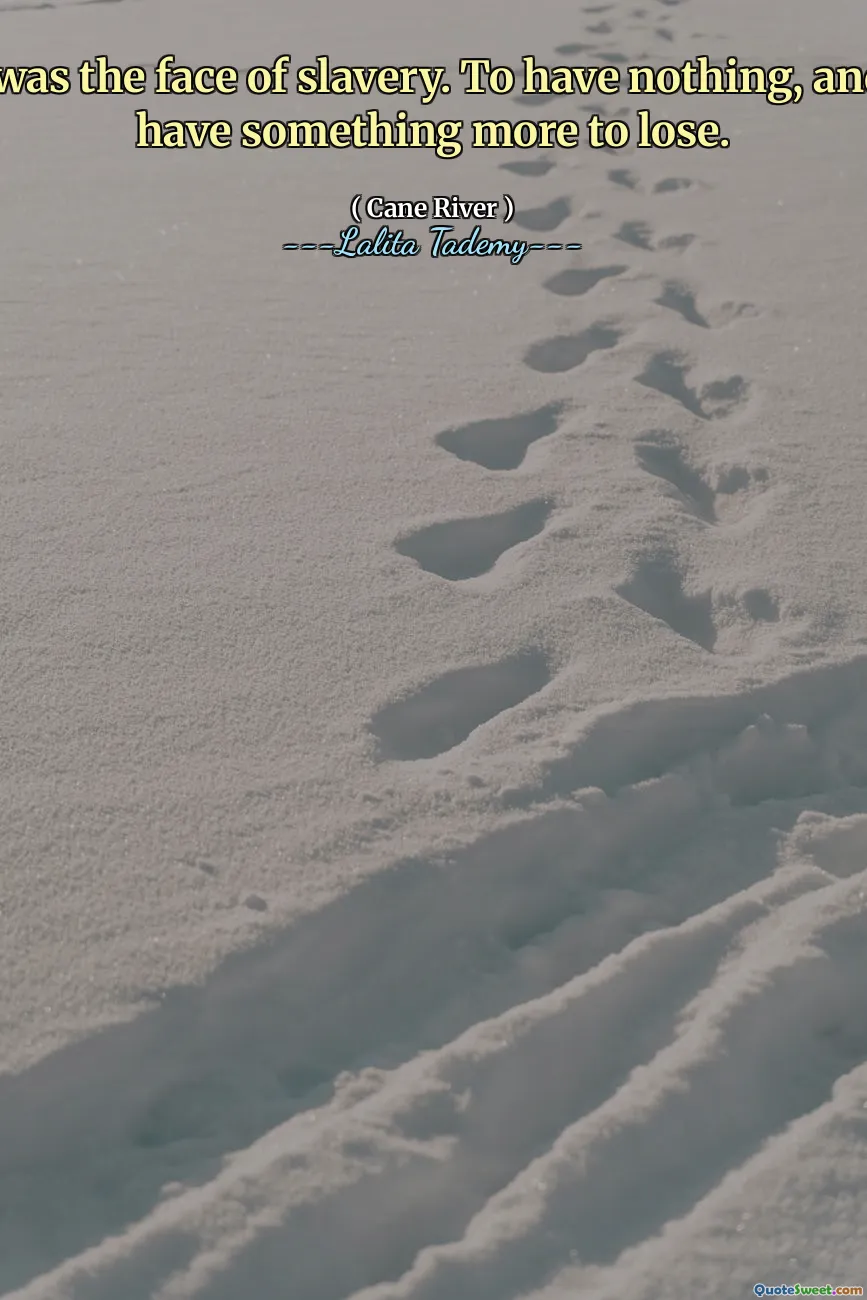
This was the face of slavery. To have nothing, and still have something more to lose.
This poignant quote captures the bittersweet paradox inherent in the brutal reality of slavery. It highlights the profound loss and deprivation that enslaved individuals endured—stripped of everything material and personal—yet overridden by an intrinsic sense of dignity and a fundamental human desire to retain some form of agency or hope. The phrase 'to have nothing, and still have something more to lose' underscores how, despite being deprived of possessions, rights, and freedom, survivors and victims of slavery often clung desperately to their sense of self, identity, or a sliver of future possibility. It reflects the emotional and psychological turmoil that accompanies such dehumanization, where even in the depths of despair, the innate human urge to resist complete erasure persists. This paradox also prompts us to acknowledge the resilience and spirit of those who endured such suffering—they may have been physically defeated but often refused to relinquish their internal will to survive, resist, or envision a better life beyond their current circumstances. It evokes a recognition of the nuanced human experience within slavery’s brutal context—where the boundaries of loss are constantly redefined. The quote encourages reflection on how systems of oppression seek not only to physically subjugate but also to attack the very essence of personal agency and hope. In literature and history, this paradox remains a powerful reminder of both the inhumane conditions faced and the unbreakable core of human resilience that persists even in the most dire situations.

